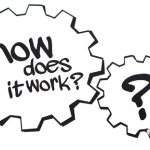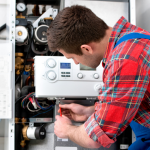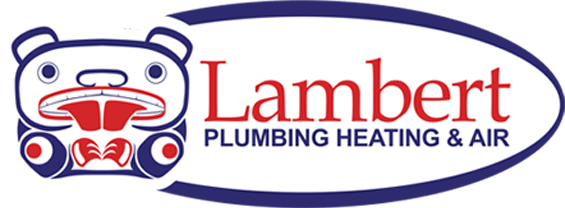Get Better Acquainted With Your Boiler With These 3 Questions
Boilers are a big part of people’s everyday lives here in Vancouver. At their best, they provide heat and comfort in homes and businesses. At their worst, they create inconveniences and sometimes even dangerous situations if they break while temperatures are very low. Like any other system, a boiler needs some care and maintenance, which may differ depending on the age and type of boiler. As such, the best thing homeowners can do for their boiler is get to know it a little bit better.
How do Boilers Work?

The overall goal of a boiler is to transfer heat to a home or building’s air. Depending on the type of boiler, this is done in a few different ways. The overall process remains the same, though— the boiler kicks on when the thermostat senses a drop in temperature. The boiler heats water by using gas, electricity, or oil. Once the water is heated, it is then sent throughout the building to transfer heat to the air. This is done using a system of radiators or floor systems. Some boilers send steam throughout the building rather than hot water.
When the water cools, or the steam begins to condense, it is sent back to the boiler to be heated again if the temperature is still below the target temp. The boiler continues to heat water and send it (or steam) through the building until the thermostat shows the correct temperature, at which point it shuts off until it’s needed again.
What Are the Different Types of Boilers?
There are many different types of boilers out there. The major classifications have to do with the kind of fuel they use to produce heat. The different types of fuel boilers use are electricity, oil, and gas.
Gas boilers are the most common type. They use a combustion chamber to heat water in a series of copper pipes. Oil boilers are less common these days. They use a combustion chamber, like gas boilers, but they also need to have the oil stored in a tank until it’s ready to use. Whereas gas can be delivered to the home via gas piping, oil must be manually delivered and stored until it’s used to make heat for the boiler.
Electric boilers use heating elements to transfer heat to water. They are generally more expensive to operate than gas boilers, which is why they aren’t as popular for use today.
What Kind of Maintenance Does a Boiler Require?
Although the overall process of a boiler doesn’t sound all that complicated, there are several components and systems within it that need regular maintenance. The homeowner can do some of this themselves, but there are certain things that need to be done by a certified professional. The most common maintenance requirements for boilers are as follows:

- Ensuring all electrical connections look good.
- Testing the PH levels of the water.
- Inspecting and cleaning the heat exchanger.
- Inspecting and cleaning the burner assembly and ignitor.
- Inspecting all piping, joints, and all parts of the venting system.
- Performing a low water cutoff test.
- Ensuring all parts are clean, no leaks are apparent, and no obstructions present.
About Lambert Plumbing and Heating
The Lambert Plumbing and Heating Company has been serving Vancouver, BC, residents since 1977. They offer up-front pricing and a 100% satisfaction guarantee. Their techs are expertly trained to work on boilers, plumbing, and heating systems. For dependable boiler repair in Vancouver, call Lambert Plumbing and Heating today!














